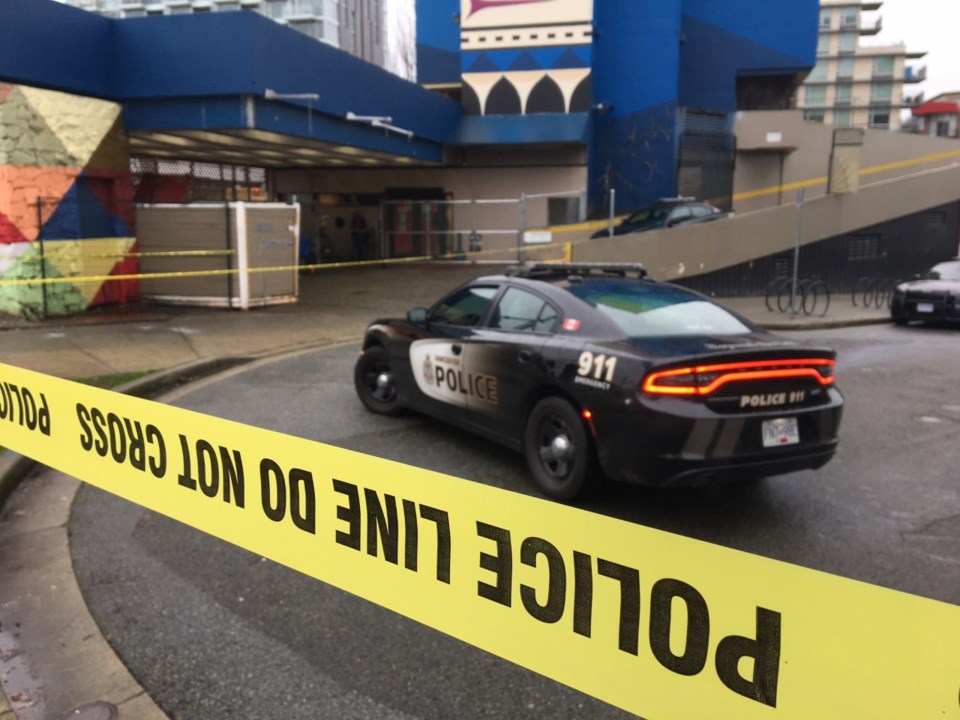Column: 12th&Cambie
You may have heard the Â鶹´«Ã½Ó³»Police Board wants the province’s director of police services to review city council’s decision in December to not fully fund the Â鶹´«Ã½Ó³»Police Department’s 2021 budget request.
The shortfall, according to the police board, was $5.7 million.
News of the review broke Tuesday.
I wrote about it, so did others.
I won’t repeat all the details but it’s important to understand a bit of the math before I proceed with more numbers that will likely get the attention of “defund police” advocates.
I’ll plagiarize a couple of sentences from Tuesday’s copy to explain…
The lead-up to the clash between the police board and council dates back to Nov. 30, 2020, when the board passed a provisional budget of $322 million for the department.
Eight days after the police board meeting, a majority of council chose to instead approve a budget of $316 million, about $766,000 more than the 2020 budget but $5.7 million less than requested for 2021.
That decision is what set up yesterday’s announcement by the police board that it had sent an application for review Monday to former RCMP officer Wayne Rideout, who is B.C.’s director of police services.
I enquired with the provincial government Wednesday to get more details on when the review will occur, how long it will take and the parameters of such an exercise, but had not heard back before I posted this piece.
Regardless, the move by the police board has set a precedent with this council, which will be in power for one more budget cycle before the election in October 2022.
So can we expect Rideout to be called on again next year?
It’s an open question but an answer may be found in the police board provided to council prior to its decision Dec. 8 to not fully fund the VPD’s 2021 operating budget request.
Under a section titled “2022-2026 outlook,” the board is clear the department will request millions of dollars more over the next five years to operate.
How much more?
Depends on a series of factors that involve many numbers and the recommendations of an operational review conducted in 2017 to determine how many cops were needed to properly fulfill the VPD’s mandate to keep citizens safe.
“The VPD’s budget is averaging a projected increase of approximately three per cent from 2022-2026 to account for estimated salary and benefit cost increases related to the operational review, attrition and potential future collective agreement wage increases,” said the document, noting the VPD was striving towards an increased workforce of an additional 120 officers and 52 civilian staff by the end of 2023.
The approximate three per cent increase in the budget could mean $370.7 million to $379 million will be required by 2026, which would be a substantial boost from the $316 million council allotted for the VPD this year.
“While the VPD must be flexible to the potential changes in policing, VPD staff must continue to address hate crimes, cybercrime, new illicit drugs, social issues such as the Downtown Eastside and encampments, the web of international organized crime and gang activities continue to necessitate additional resources, and increasing deployments for large events, protests, and demonstrations,” the document said.
The police board’s move this week comes as Coun. Michael Wiebe has met recently with Police Chief Adam Palmer and one of his deputies, Howard Chow, to discuss “a public safety strategy” for Vancouver, which Palmer argued at a budget meeting in December is already in place.
In fact, he added, it’s more sophisticated than other cities.
Earlier this year, Wiebe tabled a motion for what he called “a community safety and well-being framework” for council to consider. He later withdrew the motion, saying he wanted to hear from more people on the topic before bringing it back to council.
Palmer, meanwhile, has been public about his willingness to discuss how funding for police could be used to address many of the social issues — homelessness, mental illness and drug addiction — that officers currently deal with each shift.
“If the community wants us to do things differently, then I’d love to be at the table,” he told me in an interview in June 2020 at the peak of the widespread “defund police” movement in North America and in other parts of the world.
“I want to be part of those discussions, but it has to be informed discussion and it has to be evidence-based and a thoughtful discussion. It just can’t be a reaction to let’s all of a sudden just cut the police and see what happens.”
Cuts are what came last year to other city departments to offset some of the $85 million in lost revenues related to the pandemic. Further revenue loss is anticipated this year.
Whatever happens in the months ahead, council’s budget vote this December will be a telling one, if not a defining one for a council that has already created an acrimonious relationship with the biggest spenders of the city’s $1.6-billion operating budget.
@Howellings



